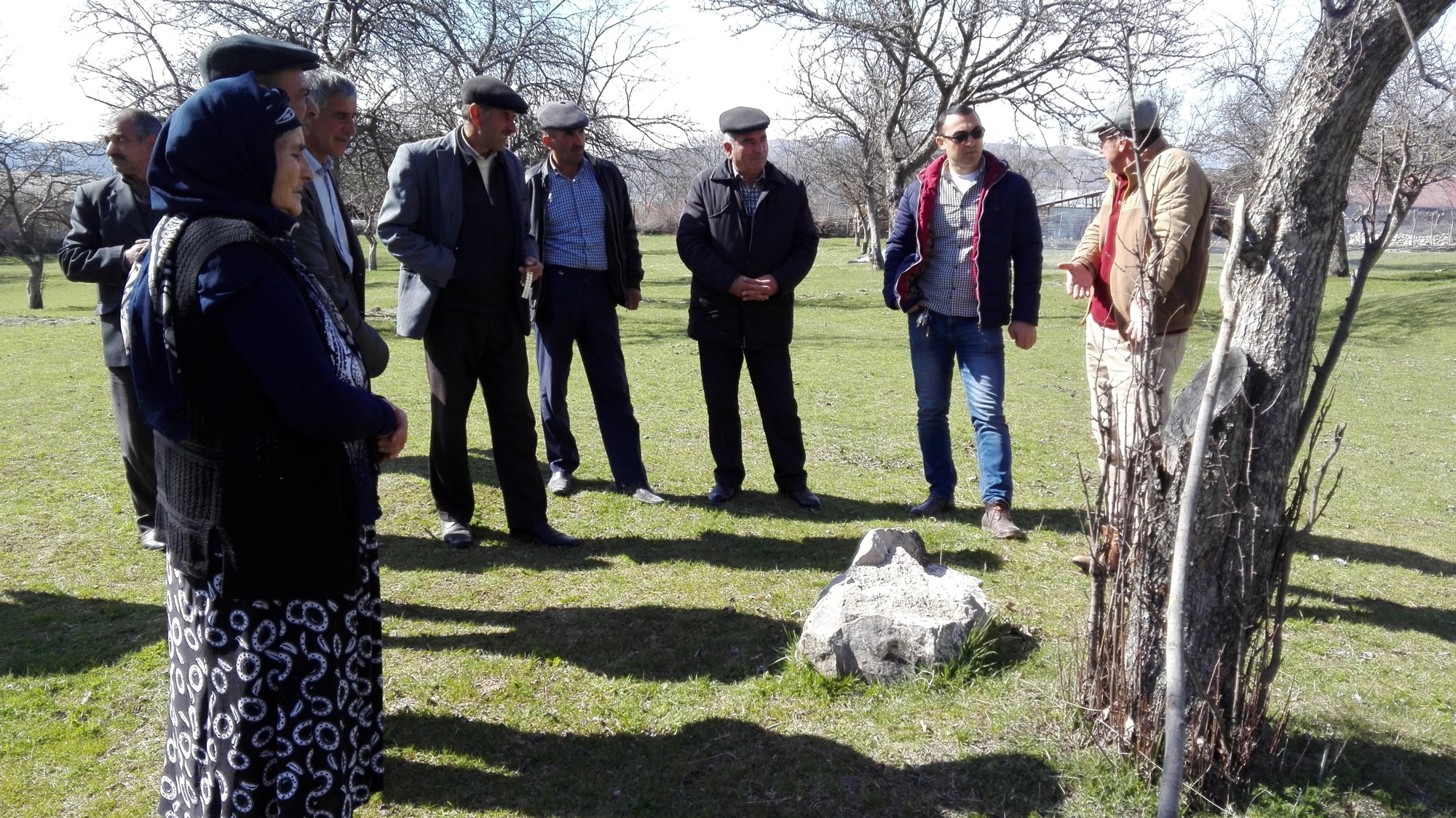

In order to properly monitor the participatory implementation of the programme a “Community Management Group” (CMG) has been established. Members of the group were selected via an open voting involving all municipality members. The CMG members represent all economic and social groups that depend on natural resources (e.g. cattle breeders, beekeepers, gardeners…) including women and youth. During the planning and implementation phase of the erosion control measures, the CMG meets regularly, informs on the current situation, discusses challenges and decides on further steps. The CMG presents its proposal and comments on the management of public land (communal land) to relevant stakeholders of the District Administration, the Property Committee, the Rayon Agriculture Department and the regional department of the Ministry of Ecology. After incorporating the feedback from different stakeholders the CMG approves the implementation of the programme activities. Moreover the CMG is a mechanism to negotiate diverging interests and solve occurring conflicts.
- Mapping of ecosystem services and understanding of its contribution to human well-being.
- Existence of traditional knowledge and skills regarding the collective use of natural resources.
- Existence of a relevant legal bases (environment) and willingness of corresponding authorities to participate in the planning process.
Plan and organize regular meetings
- The benefit of the applied measures for land users should be clearly explained to the decision makers.
- The involvement of all relevant stakeholders is mandatory to prevent exclusion and conflicts that would otherwise negatively impact the programme.
- Moderators can facilitate the decision making process (e.g. conflict mitigation).
- External experts will contribute to planning and implementation (technical, institutional advice).
- Inviting relevant ministry representatives to community meetings may create conflicts if the community is not aware of corresponding laws and regulations. It is recommended to explain current laws and regulations to the community members beforehand.
- Women, as main users of natural resources, are not always involved in decision making. Involving women will highly affect the sustainable use of natural resources.
- Participatory land use planning should use traditional knowledge and skills of the target group to maintain long-term gains.